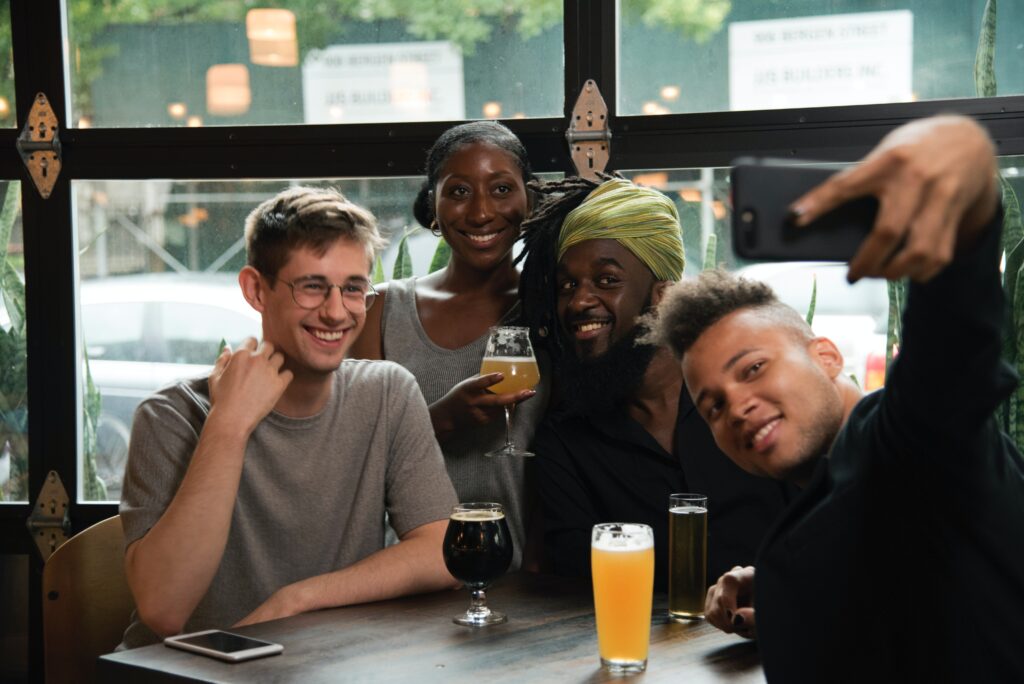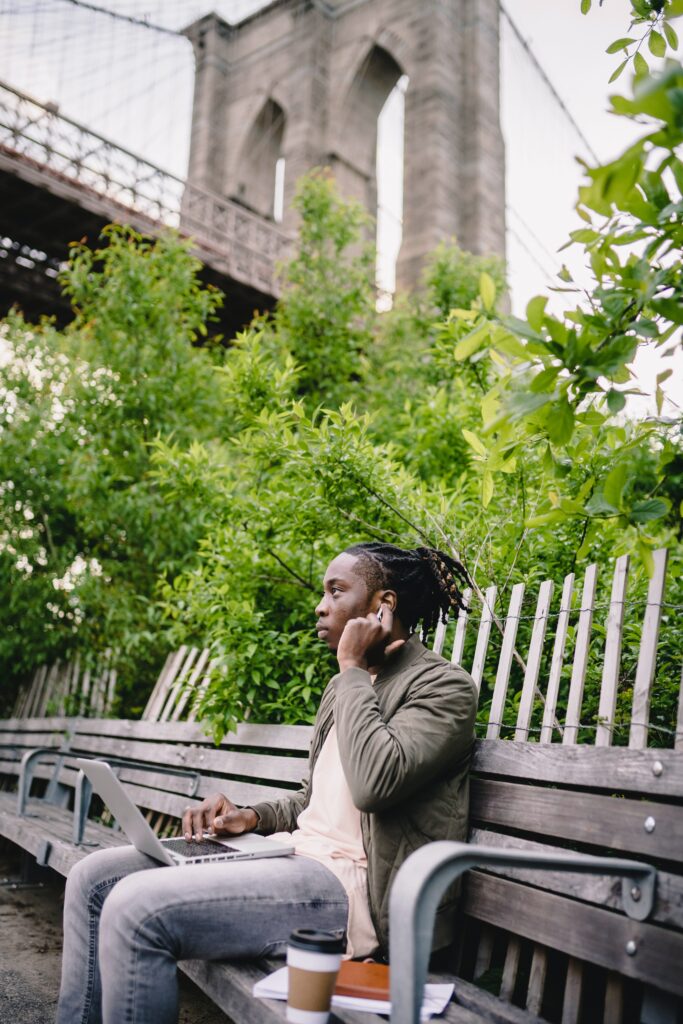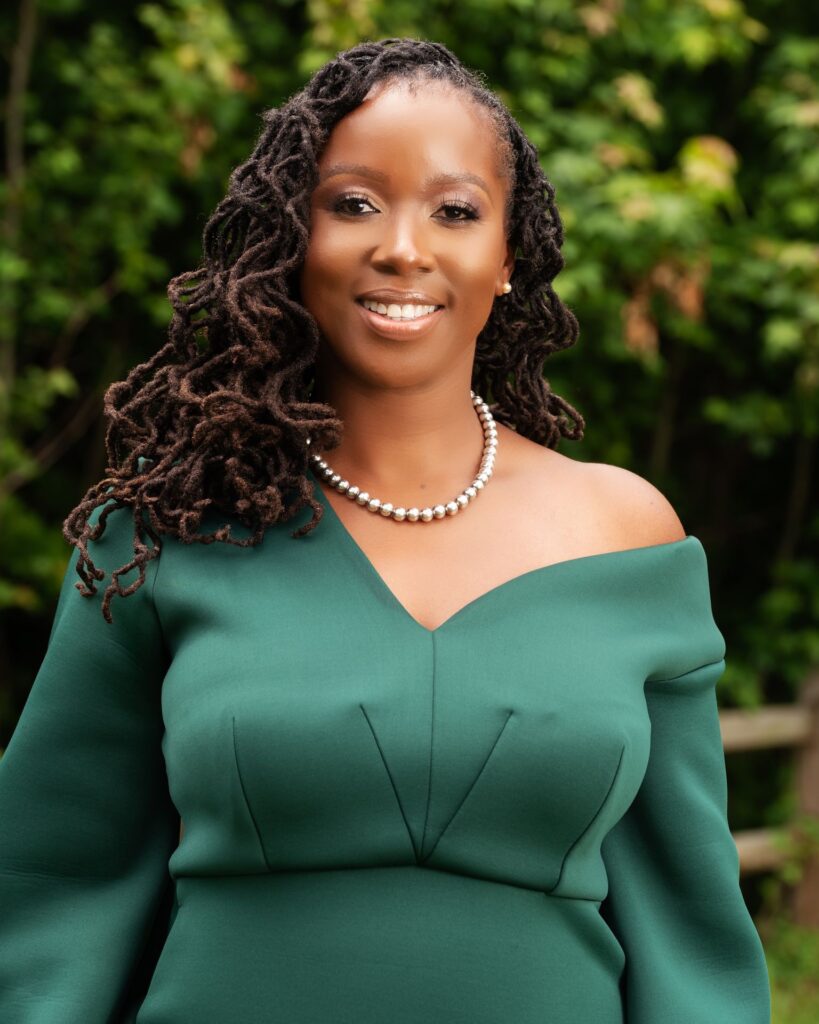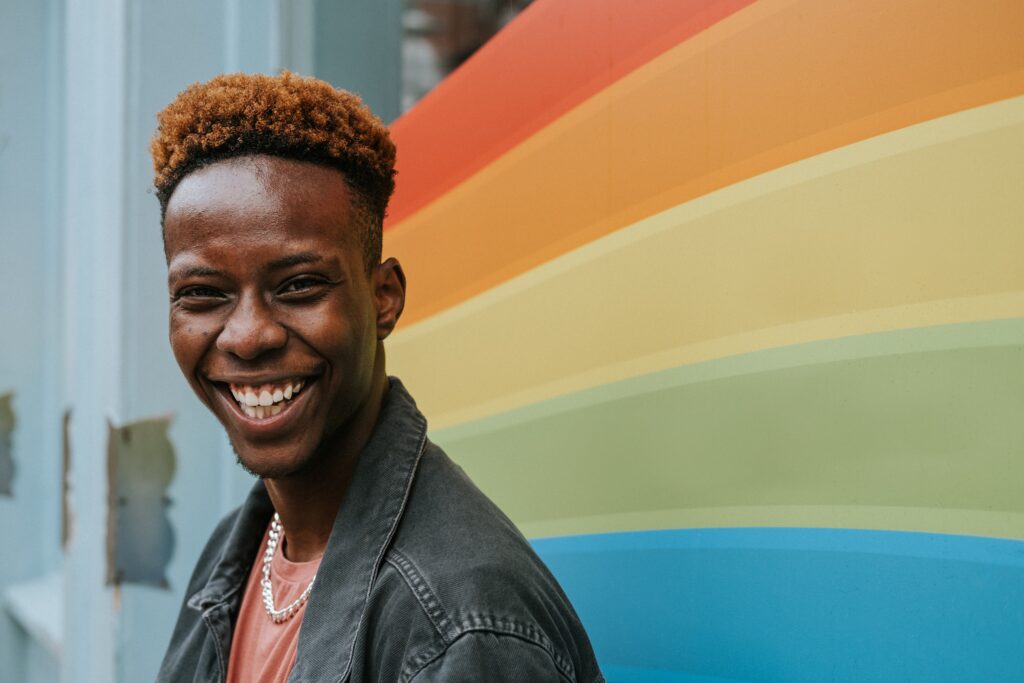Rainbow resilience: Nurturing your mental health during Pride season
Dr. LaNail R. Plummer shares her personal advice for this Pride season and beyond.
I was about 7 years old when I realized something was different with me. Many of my playground friends were singing songs from the radio that were about love and lust (listen, we were too young to really know what we were saying but we had passion while we were belting the notes) but they had a little boy in mind. And, I know they had a little boy in mind because after the song, they would talk about this little boy and tell the rest of us about how they would marry him and live happily ever after. It was cute at the time. And still cute now, because kids should have a full imagination of who they are and what they want to be. However, my experience was a bit different because I wasn’t singing about little boys…well not JUST little boys because I was bisexual but didn’t have a name for it. Depending on the day, week, or month, I could be singing about a little boy or I could be singing about a little girl. And, while the song lyrics didn’t allow for flexibility to change the pronouns of my love interest, I would try to switch it up or just imagine in my mind. But, I even found that to be tough at times. How can you imagine what you have never seen and how can you accept what you can’t quite label?
This was one of the stops on my mental health journey, in the early years. It was about awareness and acceptance…but while in hiding.
This was the 1980s in a poverty stricken neighborhood, where everyone was marginalized by the rest of society so standing out – even further – was dangerous, which added another layer to the mental health woes of people like me.
Fast forward a few decades, I was able to understand myself, process the various ways that society has tainted my view of myself, and accept how some of my core beliefs and intermediate thoughts have influenced my mental health. And, as a natural educator and trained therapist, I have taken these experiences and molded them into approaches that I use with clients and to inform the general population about caring for one’s mental health. This is especially important during PRIDE month, when many of us are still “newly out” or have not taken the time to understand how some of those early childhood feelings of confusion, displacement, and frustration have created a pattern of how we sense, feel, think, behave or react in various situations.
So, here are a few tips for understanding, being mindful, and protecting your mental health.

Increase your self-awareness.
- Know what makes you feel good
- Know what makes you feel aligned and in harmony with your goals
- Know what and who makes you feel uncomfortable
- Set aside time to increase your awareness: Meditation time, an evening review of your day, thought prompts, etc.
- If you see, notice, or feel uncomfortable about something that you realized about yourself, accept it and ask yourself: What do I want to do with this information? Do I want to change it? Do I know how to change it? And, where can I get support?
Set, stand by, and reinforce your own emotional boundaries.
- Boundaries are created to protect yourself. Ask yourself: What do I need so I can feel protected? Some common answers are: Having time alone to think and figure things out, or going out only when I feel rested, or having 1 day per week to get caught up on everything so I don’t feel overwhelmed.
- Set boundaries EVEN with the people you love and/or are close to. Sometimes we have firm boundaries with strangers or associates and loose boundaries with friends and family, however, loose boundaries will result in feelings of being taken advantage of, unseen, unheard, or emotionally exhausted.
- Remember, nobody will respect your boundaries if you don’t respect your own boundaries. So, the moment you cross your own boundary without correcting it, this will show and teach others that they too can cross and disrespect your boundaries. Remember, you are the creator and reinforcer of your own boundaries.
Saying “No” to others/situations…and saying “Yes” to yourself is self-care.
- It’s tempting to be everything to everyone…and during PRIDE it’s tempting to be the spokesperson for the LGBTQ community…but that can be overwhelming and burdensome. Remember, just because you “can” doesn’t mean you should or need to.
- Be extra mindful of where you want to be when you want to be there. If you have hesitation in going to an event, don’t go. If you have a pause in sharing space and spending time with some people (even if you call them your friends or family), don’t go. If you have been hurt by someone and haven’t had a chance to process it and/or speak with the person, choose the level of engagement you want to have…which may mean no engagement at all. You can be cordial without giving a lot of energy and/or emotions. That’s ok.
And, as we move forward with processing the intersection of politics and our mental health as members of the LGBTQ community, consider the following:
Establish and use your protective mechanisms.
Coping mechanisms are the things you do AFTER something has occurred…but protective mechanisms are the things we do before something occurs.
If your “emotional cup” is already filled…it doesn’t drain or burn you out when someone does something upsetting. It can still be hurtful and offensive, but it’s not as devastating when your “cup is full.”
Your protective mechanisms should be things that you can do daily that make you feel good, like sitting next to your window and looking outside or lighting a candle and slowing down to smell it, or reading a chapter in a book, or watering your plants, or holding hands with your partner or friend. Protective mechanisms should be easy, frequent, bring joy, and generally free of cost.
Establish some boundaries with yourself and the news.
You do NOT have to watch the news everyday to be informed nor do you have to engage in politically driven conversations when you don’t want to engage. You can change the subject, express discomfort, walk away, scroll past the post, or simply choose “no news days.”

Build a community.
(Rooted in the word commune: emotional and spiritual connection based on commonalities and shared values).
It can be 2 people…you don’t need a ton of friends in the community…a small amount is enough as long as you feel seen, heard, safe, and can practice skills like communication, problem-solving, and love.

Get out in nature.
Take a walk, go running, go for a hike, pick flowers, sit on grass, go to a body of water, open the window in your house, get fresh air, look up at the moon. It can be rejuvenating to connect with nature even when we have been conditioned to take it for granted. And, with all things connected in nature, remember to be safe, be aware, and communicate with at least one person where you are going.
Take leave.
Do not hoard your leave. Sure, you want to save it for “vacation” but using it now will ensure that you are not burned out when your vacation comes and it helps you to keep your “emotional cup” full. So take leave 1 time this month.

Go to bed…early.
Your body needs rest. Your mind needs rest. It’s tempting to stay up late working, socializing, binge watching TV…but your body needs you to sit down and go to sleep.
Be authentic.
Avoid code switching, shrinking yourself, or silencing yourself. It’s uncomfortable (even painful) to be in the margins, but it’s far worse to deny yourself because you are afraid that someone else will deny you. Your first relationship is the one with yourself…so be true and honest with yourself in ALL situations, even when you are afraid.

About the author
Dr. LaNail R. Plummer is a bisexual, Black woman, US Military Veteran, wife, mother, and the owner of DC-based mental health organization, Onyx Therapy Group. Celebrating 10-years of her Black woman-led practice, Dr. Plummer has been changing the lives of Black, Brown and LGBTQ+ communities for over 15 years. Her personal experience as a queer Black leader in the mental health space has inspired countless individuals to both acknowledge and seek mental health services to better their spiritual and emotional healing.
Married to her wife Maegan, Dr. Plummer is able to empathize and connect with queer audiences across Black and Brown communities, using her first-hand experience on issues they face such as internalized racial trauma and prejudices against them. Dr. Plummer and her team aim to support and guide the healing process of individuals, specifically within marginalized communities, and Dr. Plummer’s message of mental health and self-care, acceptance, and equity and inclusion is particularly relevant during Pride Month as she lives her advocacy year-round. Over the years she has lent her expertise to pieces for Time Magazine around mental health and athletes for Simone Biles Athlete of the Year profile; was one of 1500 Black women leaders who signed the petition to bring home Russian prisoner, Brittney Griner; provided an emotional commentary on the overturning of Roe v Wade and what it means for Black women on Afro.com; and has spoken on the racial disparities of POC and the LGBTQ+ for Forbes Magazine.






